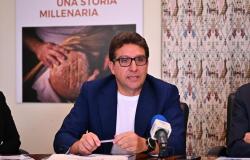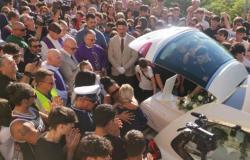In this historical moment we need a surplus of ethics, good and healthy politics, multilateral decisions, the search for the common good: Pope Francis’ message to the heads of the G7 nations moves on different levels and links different topics starting from the anthropological and scientific challenge most important thing on the horizon, the development of artificial intelligence. And he immediately explains why: «we cannot allow such a powerful and indispensable tool to reinforce the technocratic paradigm, but rather we must make artificial intelligence a bulwark against its expansion» avoiding algorithms deciding whether to «take life to a human being.” When he speaks of a technocratic paradigm – a concept very present in his preaching – he refers to the risk of imposing uniform anthropological, socio-economic and cultural models bearing “a totalizing vision of the world” dominated by the few who hold power.
G7, Pope-Macron face each other after including abortion in the Constitution: 4 out of 10 Catholics voted for the right
The Pope’s speech
From here he suggests two paths, the first concerns the banning of so-called autonomous lethal weapons, born from the application of AI to armaments, since no machine – he says – “should ever choose whether to take the life of a human being”. The second is based on the recognition of “sound politics” to look to our future with hope. The horizon, he underlines, is very complicated for everyone: “It seems that the value and profound meaning of one of the fundamental categories of the West is being lost: the category of the human person.”
Pope Francis reads the speech in its limited form although he gave the heads of state the longer version, including explanations in which he dwells on expressing doubts about the uncontrolled use of AI which he defines as a “powerful, fascinating and tremendous tool » to the point of requiring reflection appropriate to the situation. Naturally it is not a matter of a halt but of a discernment saving all that this scientific frontier will bring in various fields of daily life.
«The diocese needs money», AI and 4.0 scams that reproduce prelates’ voices: nuns and priests deceived in Spain
The topic of AI
Here is the central passage. «The topic of artificial intelligence is often perceived as ambivalent: on the one hand, it excites for the possibilities it offers, on the other it generates fear for the consequences it suggests. In this regard, it can be said that all of us are, even if to a different extent, crossed by two emotions: we are enthusiastic when we imagine the progress that can derive from artificial intelligence, but, at the same time, we are scared when we see the inherent dangers to its use. Furthermore, we cannot doubt that the advent of artificial intelligence represents a real cognitive-industrial revolution, which will contribute to the creation of a new social system characterized by complex epochal transformations. For example, artificial intelligence could allow for a democratization of access to knowledge, the exponential progress of scientific research, the possibility of delegating strenuous work to machines; but, at the same time, it could bring with it a greater injustice between advanced nations and developing nations, between dominant social classes and oppressed social classes, thus endangering the possibility of a “culture of encounter” to the advantage of a “throwaway culture”».
Artificial Intelligence, Father Benanti in front of 100 ambassadors: «Global governance is urgently needed or there will be social collapse»
Politics
In his reflection the Pope does not linger on religion or sacred texts, except for a phrase taken from the Book of Exodus: «Sacred Scripture attests that God has given men his Spirit so that they may have wisdom, intelligence and knowledge of every kind of work”. His reasoning develops on a philosophical and ethical level, ending with an appeal. «Can he find an effective way towards universal brotherhood and social peace without good politics? Our answer to these last questions is: no! Politics is needed! I want to reiterate on this occasion that in the face of many petty forms of politics aimed at immediate interests, political greatness is shown when, in difficult moments, one operates on the basis of great principles and thinking of the long-term common good. The political power finds it very difficult to accommodate this duty in a national project and even more so in a common project for present and future humanity.”
Thanks from Prime Minister Meloni
The papal intervention was introduced by Prime Minister Giorgia Meloni who thanked him for his participation and for having agreed to remain in the exchange session between the heads of state at the G7. Next to the Pope at the large white table sits French President Macron with whom he had a bilateral meeting only a few hours earlier, in addition to the conversation with Canadian President Trudeau and the president of the International Monetary Fund. As soon as he enters the room in a wheelchair, escorted by the prime minister, everyone gives him a long round of applause. The King of Jordan greets him with a kiss, as do the Argentine President Milei, President Lula and the Indian Narenda Modi.
Pope Francis goes to the G7 to weave the canvas of peace, will have talks with Biden, Meloni, Erdogan, Zelensky
© ALL RIGHTS RESERVED
Read the full article at
The messenger





